The education system is one of the strongest remnants of Haiti’s colonial past.
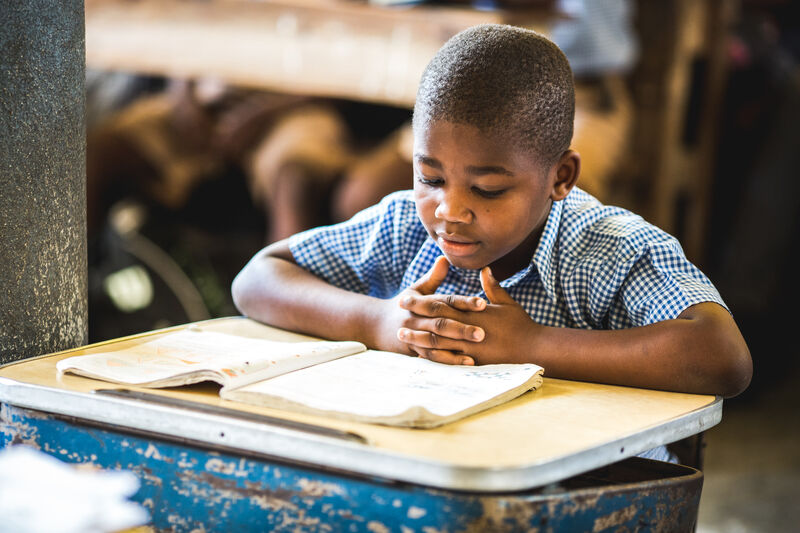
Our country demonstrated unity and pride during the Haitian Revolution (1791–1804), helping us build the world’s first Black Republic. Yet the state of our education system today fosters fragmentation and undermines local cultural assets. At APA, we believe we need to build on what makes us Haitians to spur transformation. Our movement is about taking full ownership of our power as Haitians through collective action.
The education system reinforces divisions among Haitians by design, which widens existing socioeconomic gaps between rural and urban populations.
What contributes to these inequitable outcomes?
Haiti lacks a genuine public school system that ensures quality education for all students. 85% of all Haitian schools are private schools that often charge fees at rates too high for low-income families.
Rural schools are often understaffed and lack up-to-date training methodologies. 80% of Haiti’s primary school teachers are not formally trained.
APA operates at the center of this systemic crisis, laying the groundwork for what can become a model for the country’s first real public school system. Working closely with the Haitian Ministry of Education, APA is helping train public school teachers in effective, student-centered teaching practices.
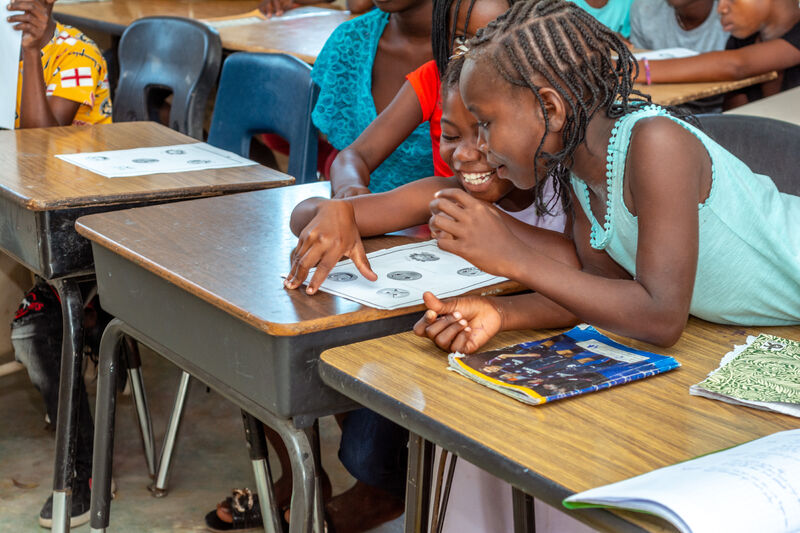
Haitian students learn their lessons in French, instead of their mother tongue of Haitian Kreyòl.
Learning methods which disregard local culture leads to a decline in literacy and an unstable sense of Haitian identity.
At APA classrooms, Kreyòl is the language used in lessons and assessments. Our cohorts also create varied materials and initiatives to grow Kreyòl-language resources outside the classroom setting: learning tools, documents, reading materials, videos, radio
programs, and writing competitions.
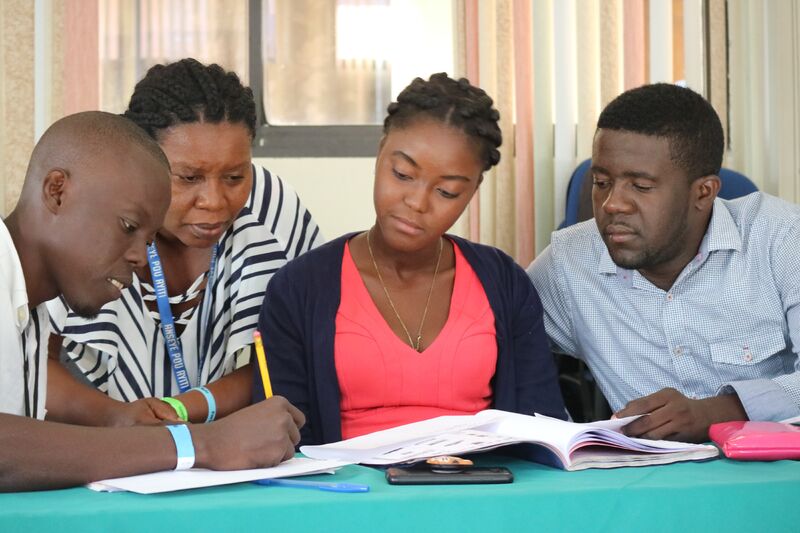
Schools rely heavily on rote memorization to conduct lessons, which prevents students from retaining information and developing
problem solving competencies.
As bearers of Haiti’s future, the youth should be able to exercise their own creativity and critical thinking skills.
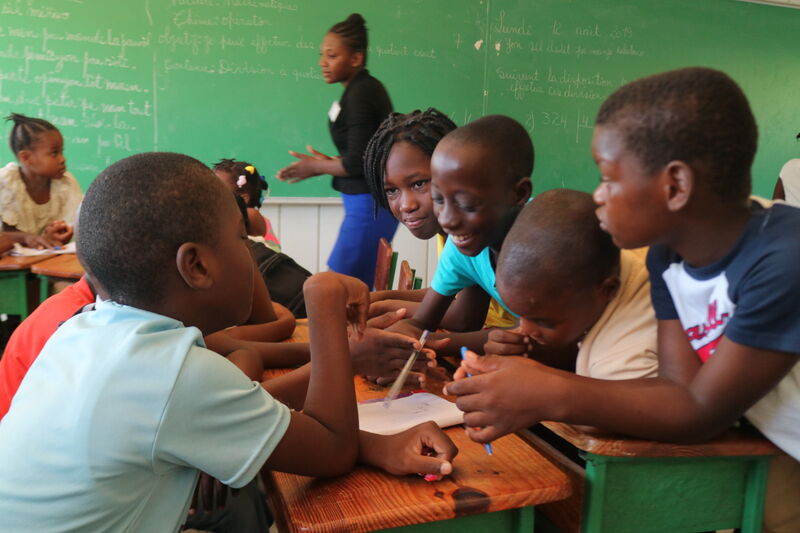
Without civics education, students risk not knowing their rights and obligations as Haitians.
If we show that there is a place for love of country in our schools, we encourage students to engage in community and nation-building activities.
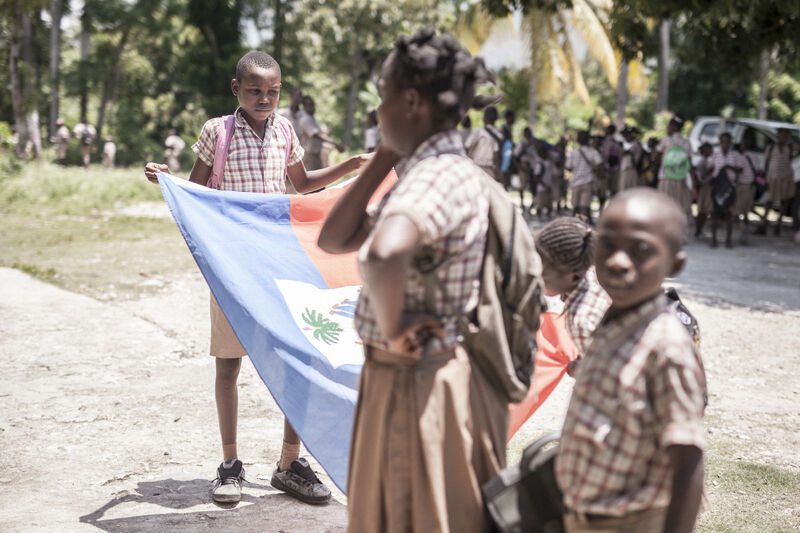
Despite its criminalization in 1843, many students still endure corporal punishment as a form of discipline.
Hurting students in response to mistakes can cause them to retreat into themselves, when what we want is for students to grow to new
heights – to become brave leaders with a sense of responsibility and accountability.
With the goal to protect and nurture youth, fellowship graduates lead communities in campaigns to eradicate corporal punishment.
APA’s focus on healing-informed pedagogy helps civic leaders – who themselves are products of systems they aim to transform – reclaim their power and create just systems for the next generation of Haitians.
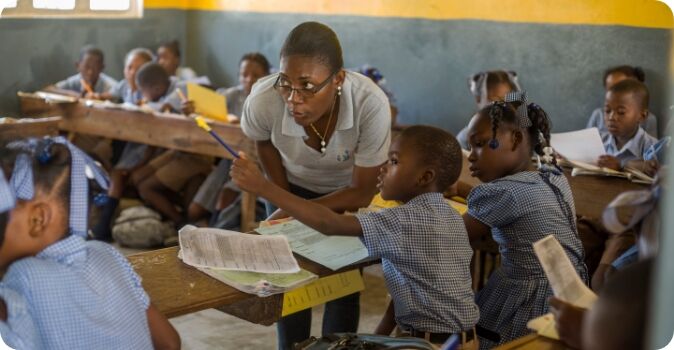
The wall between education and community hinders us from achieving our full potential as Haitians. It excludes local knowledge, assets, and cultural traditions in students’ learning, and minimizes opportunities for people to tap into their strengths as civic leaders.
When learning is restricted to the four walls of the classroom, Haitians become unprepared to actively engage as members of their communities and citizens of Haiti. They struggle to build collective leadership that can address shared issues such as political unrest and economic instability.
We foster collaboration among teacher leaders, parent leaders, and school leaders, engaging entire communities to catalyze transformation beyond classroom walls.
Through our fellowship programming and movement building activities, civic leaders deconstruct their experiences of inequity and create lasting solutions that have the potential to go beyond education, beyond communities, and beyond Haiti.